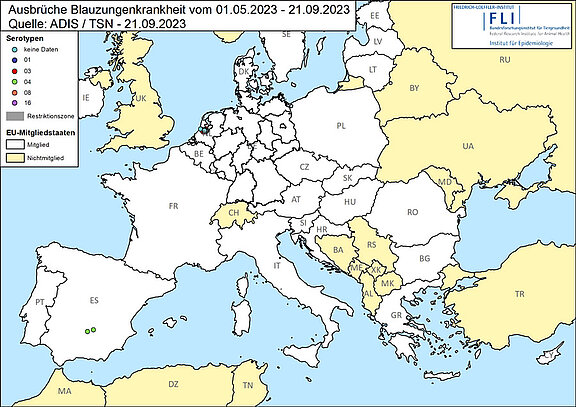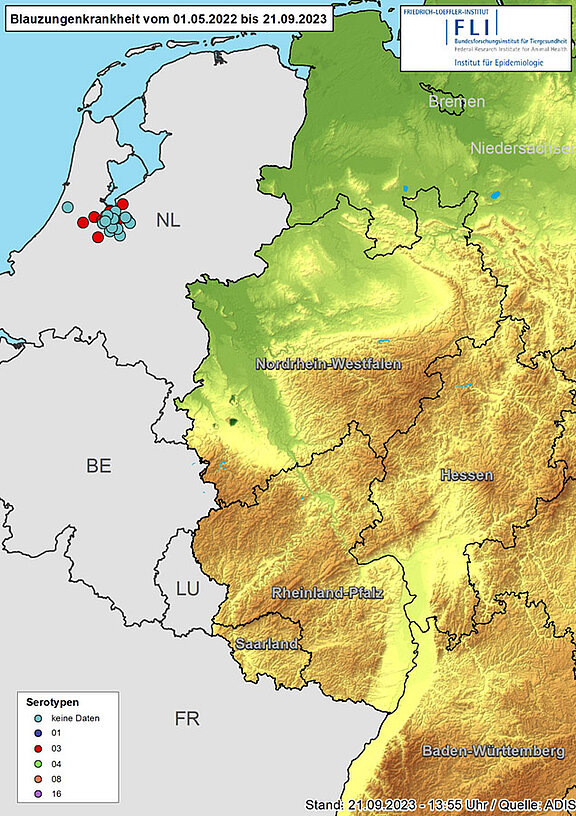Dutch veterinarians observed clinical signs of bluetongue (BTV) in sheep on five farms in the provinces of Noord-Holland and Utrecht on 3 and 4 September. On 5 September, the Dutch reference laboratory (WBVR) confirmed bluetongue on four of the five farms and identified serotype 3 (BTV-3). More than 40 farms are now affected, mostly sheep farms. The Dutch government initiated measures such as the closure of the affected farms and outbreak investigations.
Due to the dynamics of the event, with a large number of new outbreaks, there is a risk that German farms may also be affected. Therefore, small ruminants and cattle showing clinical signs typical of BTV should be tested for infection.
High fever (up to 42°C), swollen tongues, reluctance to eat, salivation and lethargic to moribund behaviour have been observed in some affected sheep. As the disease progressed, lesions in the mouth and tongue were also reported, as well as deaths.
The whole of the Netherlands has lost its BTV-free status. This means that cattle, sheep and goats from the Netherlands can only be moved within the EU in accordance with the measures laid down in Commission Delegated Regulation (EU) 2020/688 (in german language).



